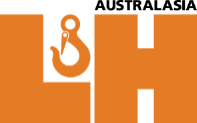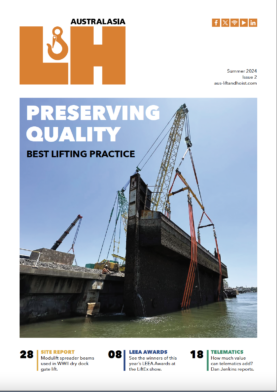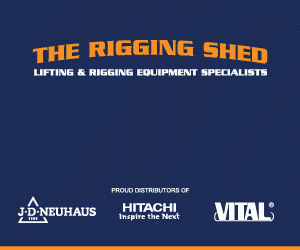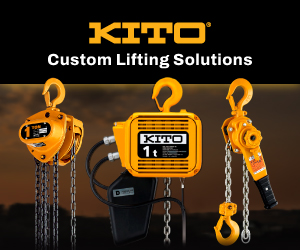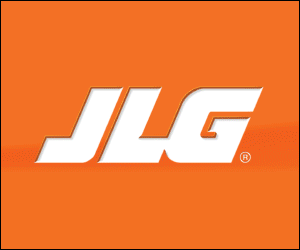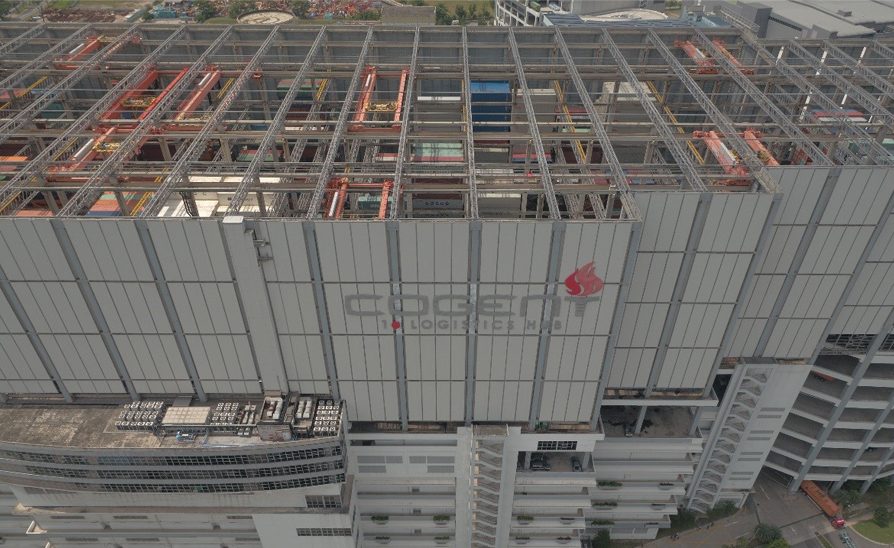)
Cogent ‘sky depot’ boosts efficiency with smart stacking cranes
Konecranes stacking cranes are used by Cogent’s integrated logistics hub with a rooftop container depot a world first and currently the only one in existence
One of the largest integrated logistics hubs in Singapore, Cogent One-Stop Logistics Hub, houses a world’s first – a cutting-edge rooftop container depot that enables the facility to provide its customers with a full suite of services.
In major trans-shipment hubs like Singapore, there is a great need for facilities that can store empty containers. Cogent Logistics, an important player in the warehouse logistics industry, opened a pioneering sky depot as a direct response to this need.
Cogent is the first logistics provider in the world to successfully implement 15-high container stacking using Konecranes electric overhead travelling (EOT) cranes. Now in active use, the heavy-duty cranes have a lifting capacity of 12t – suitable for empty container handling. Added smart features such as target positioning, hoist synchronisation, hook levelling and energy saving regenerative drives help the crane operator handle the containers safely and efficiently.
Cogent One-Stop Logistics Hub’s towering structure confronts the challenges of land scarcity and high operating costs in Singapore. Perched atop it, 110 meters above the Jurong and Tuas industrial areas, is the hub’s groundbreaking rooftop depot. Opened in 2016, this latest expansion of the facility enables Cogent to support customers with a full range of services including transportation, warehousing management and container depot management.
But as warehouse and container depots are typically situated either portside, near railways or other transport hubs, finding an effective concept for a rooftop depot was an especially complex and demanding process. The task of acquiring the right lifting technology was no exception.
For an overhead crane to operate seamlessly and efficiently from a rooftop, the facility needed to apply a particularly innovative lifting solution, explains Jian Yong Lee, Spokesperson at Cogent Container Depot.
“Although many of the existing features of our cranes mirror that of cranes used in ports and terminals, our container depot has lower tonnage empty containers, tight space limitations and a significantly higher handling height. Customisations to the taxi speed, anti-sway and target positioning systems also had to be made to suit our requirements,” said Mr Lee.
To procure the cranes that would fulfil such unique specifications, Cogent needed a technology partner, not just an equipment supplier. Taking on this special project required thorough risk assessment, according to Ryan Wang, Regional Sales Manager, Industrial Cranes SEAP, at Konecranes.
“We had to apply our technology from a different perspective and know our own limitations well enough to take up this project,” said Mr Wang.
Mr Lee said that Konecranes worked collaboratively with Cogent to understand the requirements for their unique container depot. “They provided recommendations throughout the project that helped us to develop a suitable solution,” he said.
“Konecranes is one of the few vendors that is open, innovative and flexible enough to challenge norms and address new industry problems and requirements.”
ACCELERATING THE TRANSPORT CYCLE
By incorporating a warehouse and container depot in one hub, Cogent Logistics has effectively sped up the transport cycle by doing away with one trip per cycle. Shipping containers collected from the integrated depot can be delivered to the warehouse within minutes, cutting waiting times significantly.
This abbreviated flow of operations also means that the hub can manage higher volumes within the same amount of time, translating to savings for the shipping lines Cogent serves.
“Our initial challenge was adapting to this new form of operation flow. Therefore, it helps to work with vendors who are able to bring solutions to us that are safe, reliable and innovative,” said Mr Lee.
The hub’s operations also benefit from Konecranes TruConnect Remote Monitoring, which makes use of sensors installed on the cranes to gather data on their operation. The data includes operating statistics such as running time, motor starts and work cycles as well as safety-related issues like emergency stops.
“TruConnect has given us a platform to keep track of our equipment utilisation frequency and running hours. This is useful for monitoring and planning operational work, to monitor run times of the equipment and keep logs for better detection of any abnormalities on the cranes,” says Lee.
“Expected downtime to perform crane servicing or maintenance can always be arranged at reasonable notice to minimise operational disruptions. Good communication with the Konecranes team is always appreciated.”
